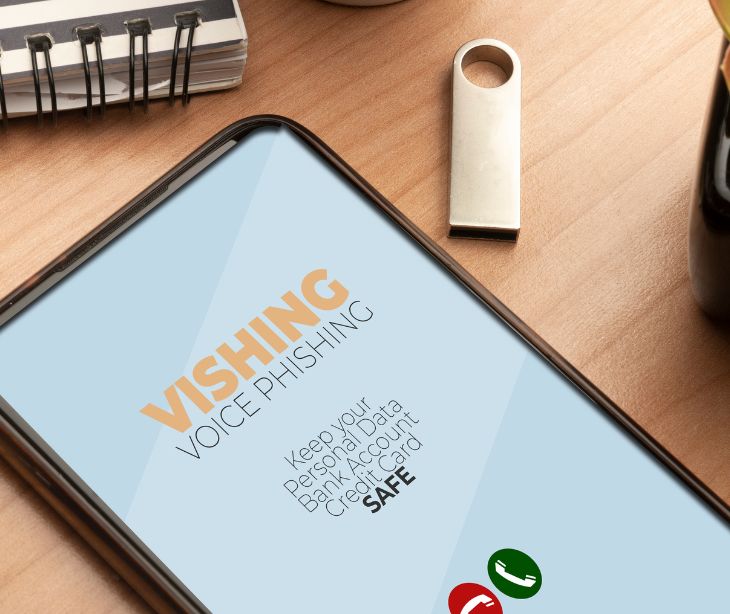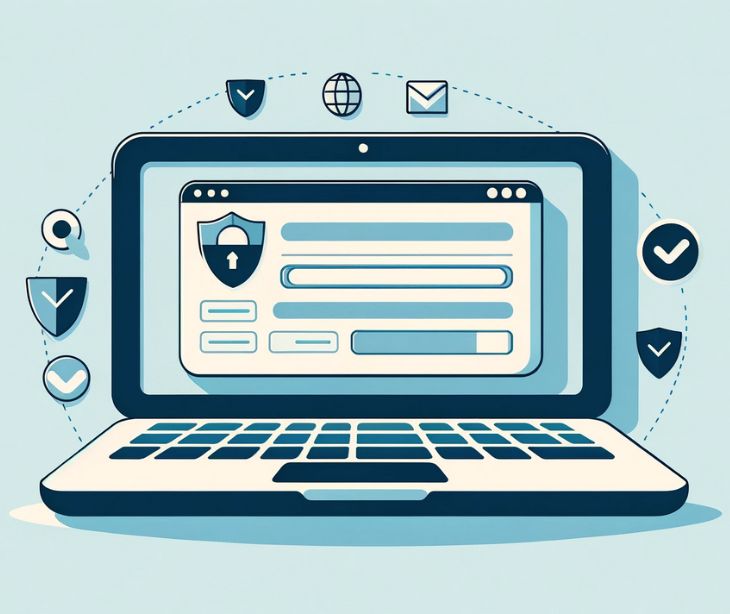
Vishing, short for voice phishing, is a cyber attack that exploits voice and telephony technologies to trick individuals into revealing sensitive information. This form of social engineering intends to gain access to personal or financial data for monetary gain or other malicious purposes.
How vishing attacks work
Vishing attacks involve a variety of tactics employed by scammers to manipulate their targets into divulging confidential information. They may directly call their victims or leave voice messages. Scammers often precede their calls with text messages or other baiting mechanisms to make their schemes more convincing.
For example, a potential victim might receive a text message stating a problem with their bank account. Shortly after, they received a voicemail claiming that their account had experienced suspicious activity and was now locked down. The message instructs the victim to call a specific telephone number to verify their identity or resolve the issue.
Vishing techniques used by scammers
To increase the likelihood of success, vishing scammers use emotional manipulation, exploiting emotional responses to pressure their victims into revealing information without careful consideration.
- Impersonating financial institutions: Scammers claim to be calling from credit card companies or banks, stating that an urgent problem with the victim's account requires immediate action.
- Exciting opportunities: Scammers entice victims with offers of interest-free credit cards or heavily discounted merchandise but stress the need for immediate action to secure the deal.
- Government agency impersonation: Scammers pretend to be representatives from government agencies like the Centers for Medicare & Medicaid Services or the Social Security Administration, suggesting issues with the victim's account that require immediate attention.
- Technical support scams: Scammers pose as technical support technicians, alerting victims about supposed issues with their systems or services, creating a sense of urgency to resolve the problem immediately.
- Warranty expired: Scammers inform victims that their car or another warranty is about to expire, urging them to act quickly to extend the coverage.
- Cash prize scams: Scammers claim the victim has won a cash prize but require additional personal information to claim the winnings.
Advancements in vishing techniques
Today's cybercriminals carry out large-scale vishing campaigns leveraging advanced technologies :
- VoIP: Voice over IP (VoIP) plays a significant role in enabling these attacks. VoIP leverages high-speed IP networks to facilitate voice communications. While it is widely used for legitimate purposes, scammers exploit its features to conduct vishing attacks without being easily detected.
- Caller ID: Caller ID spoofing is another technique employed by vishing scammers. Scammers can impersonate legitimate sources such as banks or government agencies by manipulating the displayed caller IDs. This manipulation adds an additional layer of deception to their schemes.
- Voice cloning: Voice cloning enables scammers to simulate the voices of individuals their victims might recognize, making their targeted attacks more effective and challenging to identify. When combined with VoIP technology, vishing attacks become difficult for authorities to trace and prevent.
Read also: VoIP Providers and HIPAA Compliance: The Ultimate Guide
Protecting Yourself Against Vishing Attacks
Remain vigilant and suspicious of unsolicited phone calls or voicemail messages. Reputable government agencies and financial institutions have policies stating they never call individuals to solicit personal or account-related information. If you suspect you are targeted in a vishing attack, simply hanging up is the best course of action. Contact the institution's public phone number to verify recent activity and ensure your account has not been compromised. Avoid calling any numbers provided by the potential scammer or responding to any prompts.
See also: HIPAA Compliant Email: The Definitive Guide
In the news
In a recent alert, the US Cybersecurity and Infrastructure Security Agency (CISA) warned the public about a rising rise in vishing scams involving fraudulent calls purportedly from CISA representatives. These malicious actors attempt to deceive individuals into transferring cash, gift cards, or cryptocurrency, under false pretenses. CISA clarified that their staff never initiate such requests and do not ask for secrecy in communications. Victims are advised to refuse these demands, document caller details, and promptly end the call. This alarming trend shows the changing tactics of cybercriminals, who exploit trust in government agencies to perpetrate financial fraud. Experts reiterate the impertiveness of education and heightened vigilance to combat vishing, recommending advanced cybersecurity measures like multifactor authentication and awareness training to protect against these sophisticated social engineering tactics.
FAQs
What is vishing in the context of healthcare?
Vishing in healthcare refers to fraudulent attempts to obtain sensitive information or access to healthcare systems through phone calls or voice messages. Attackers manipulate victims into revealing personal data or credentials.
How does vishing impact healthcare organizations?
Vishing can lead to unauthorized access to patient records, financial fraud, or disruption of healthcare services. Successful attacks compromise patient confidentiality and may result in legal and financial repercussions for organizations.
What are common tactics used in vishing attacks against healthcare professionals?
Tactics include impersonating trusted entities such as insurance providers or IT support, creating urgency or fear to prompt immediate action, and using social engineering techniques to gain trust and solicit information.
How can healthcare professionals identify and prevent vishing attacks?
Professionals should verify caller identities through known contact information, refrain from sharing sensitive information over the phone unless certain of the recipient's identity, and report suspicious calls to security personnel.
What should healthcare organizations do to enhance defenses against vishing?
Organizations should educate staff about vishing threats, implement procedures for verifying caller identities and handling requests for sensitive information, and regularly update security protocols to include voice-based phishing prevention measures.
Subscribe to Paubox Weekly
Every Friday we bring you the most important news from Paubox. Our aim is to make you smarter, faster.




